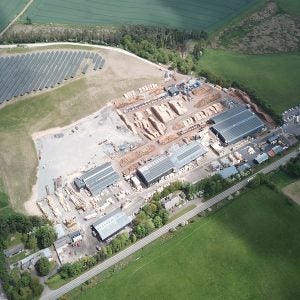A senior timber industry figure has called for a “rational, informed debate” on the structure of Forest Enterprise (FE).
Addressing a recent meeting in Perth, Forestry & Timber Association chairman Robert Scott argued that FE was shielded from commercial reality in that it could not go bankrupt and that, with timber prices at very low levels, the market dominance of FE was hurting private growers.
A gradual reduction in grants paid to the non-state sector had coincided with a period of increasing losses within FE, he later told TTJ. This raised the principle of “how people in the non-state sector can compete” with a loss-making state organisation. A “more transparent” solution, he suggested, would be to make FE eligible for the same grants as organisations in the non-state sector “but ineligible for other sources of public money”.
Pointing out that the Forestry Commission was acting as adviser to government, manager of the state forests and regulator of the industry, Mr Scott described this as “an unusual arrangement” compared to most other countries. However, he accepted that the Forestry Commission was “open and honest” in its dealings and was conscious of the issues that were being raised.
Speaking recently to TTJ, Forestry Commission director-general David Bills acknowledged the scope for a conflict of interests but insisted FE did not benefit from any lighter treatment. In many ways, he insisted, “we demand more from it (FE) than from the private sector”.






